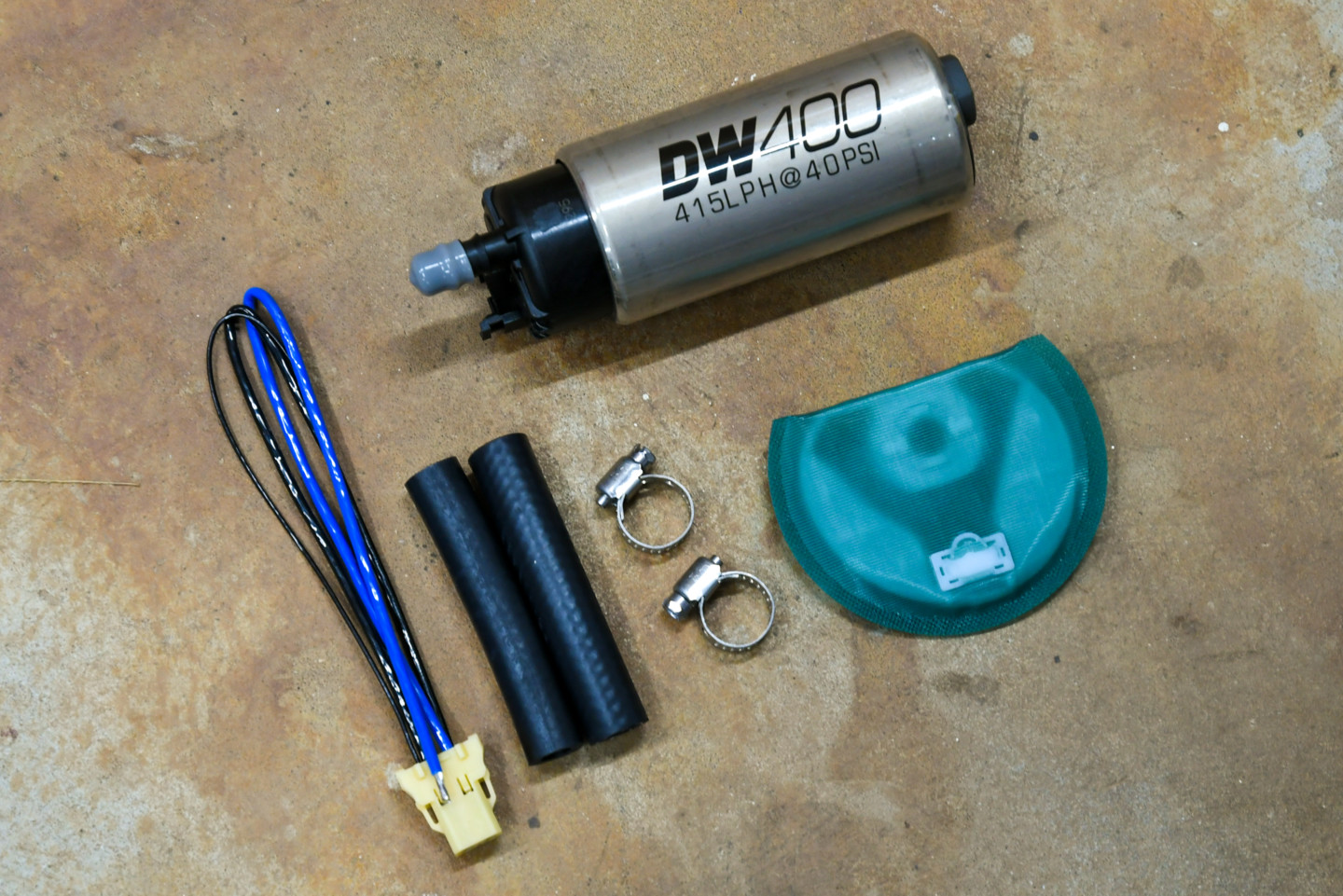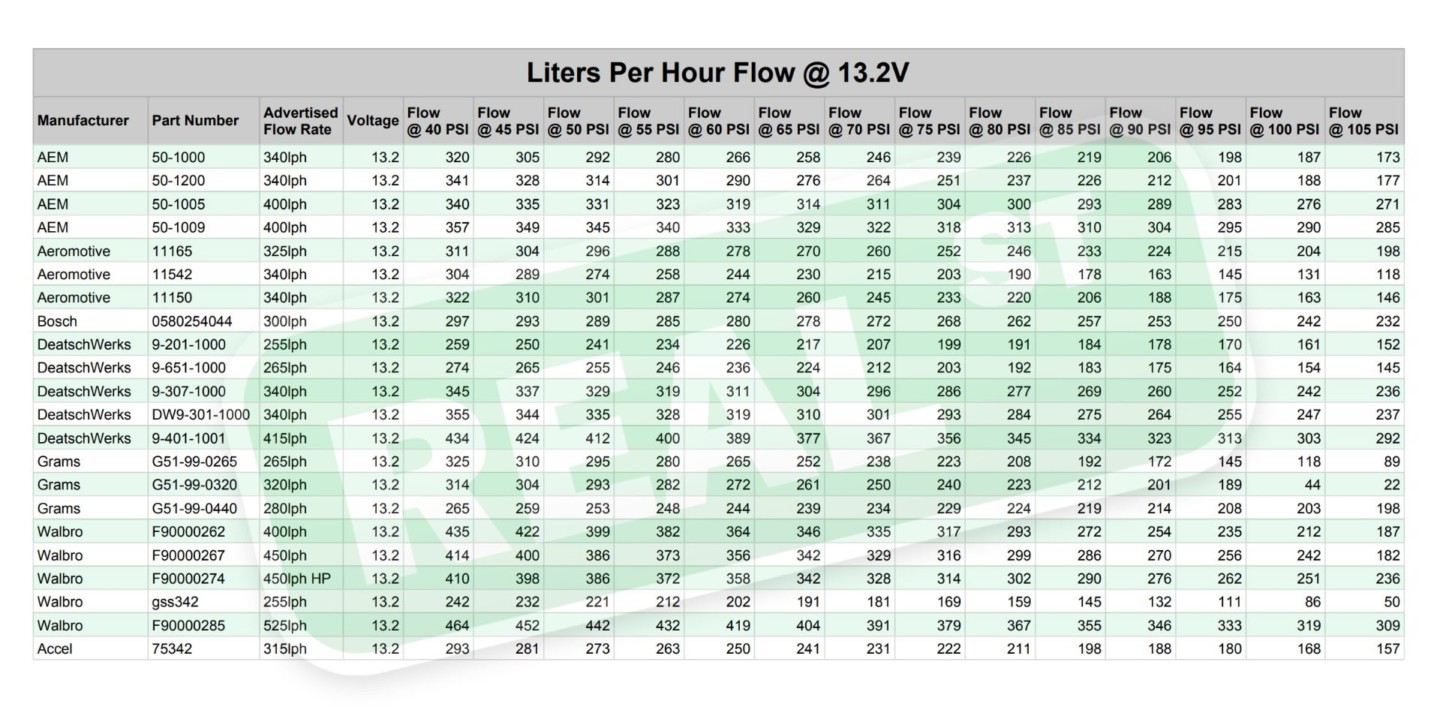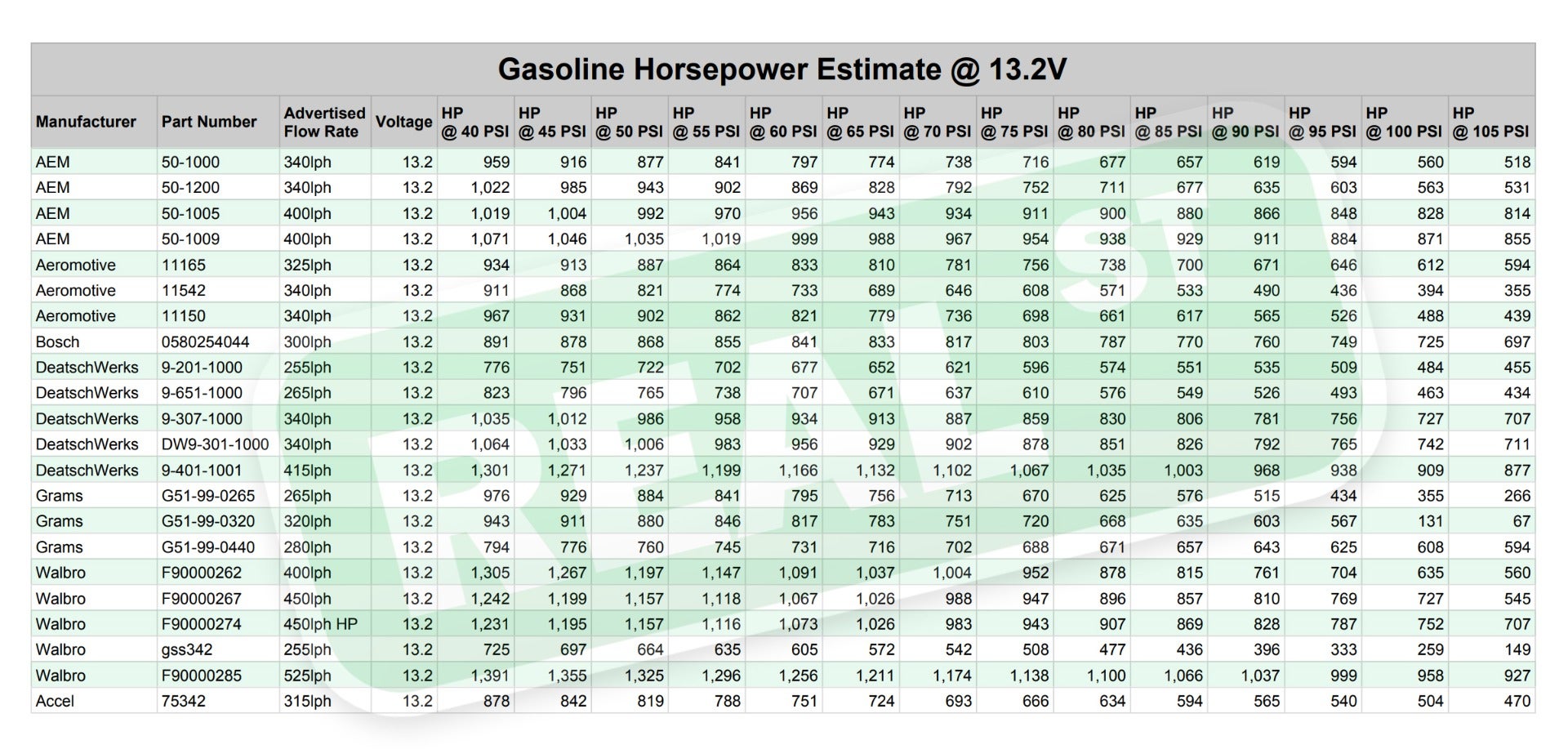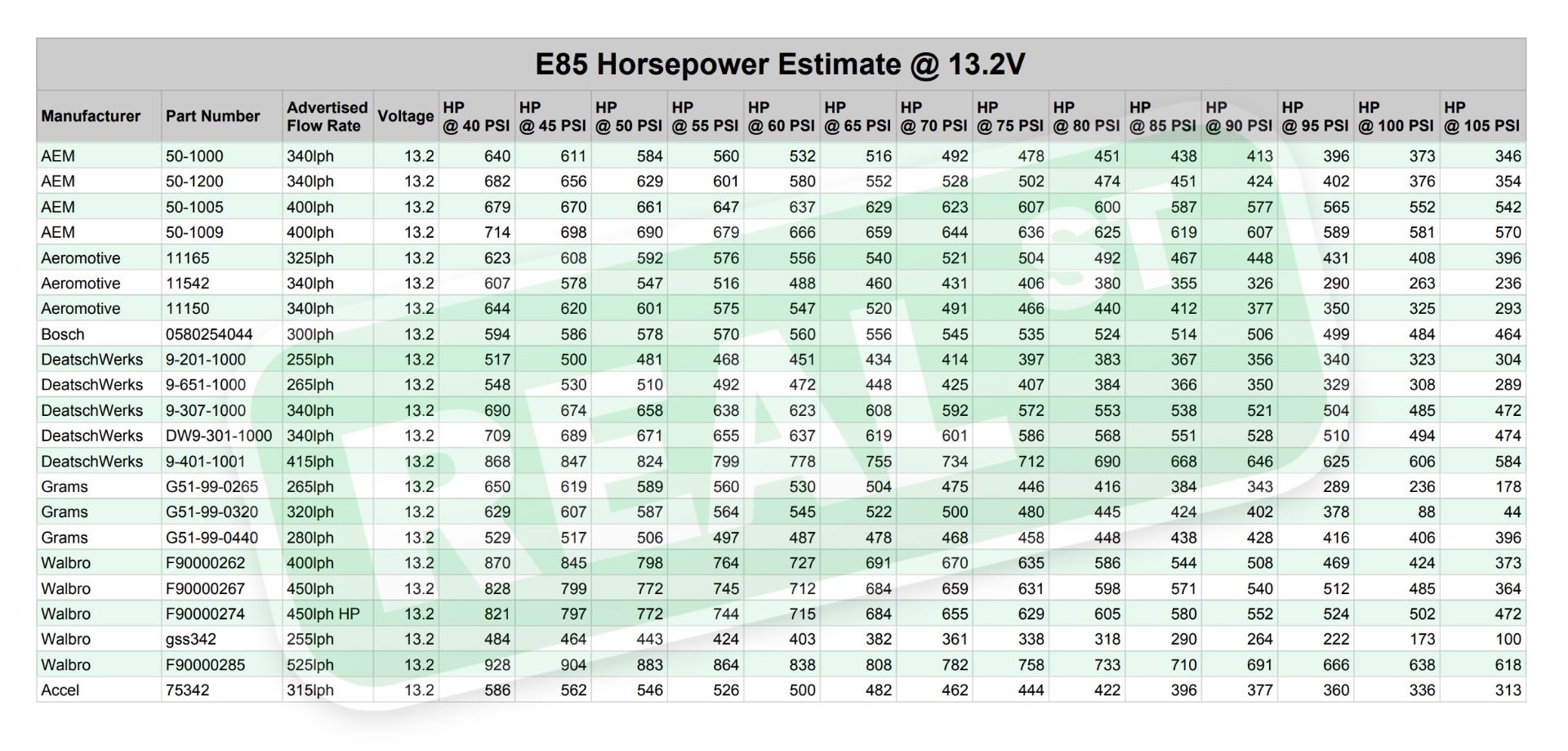There’s always been a buzz in the industry about fuel pumps. The question often pops up on who makes the best pump? With all of the different fuel pumps offered and depending on a vehicle’s needs, that’s a difficult question to answer. The only way to honestly figure out what a fuel pump is capable of is to test it. The problem here is that the process is not only time-consuming and expensive; you need tools to measure the flow, pressure, fuel pumps, and lots of them. Fortunately, Real Street Performance did a non-biased fuel pump comparison test on some of the more popular pumps on the market.
The test for this comparison is quite simple. The pumps were all used at the same voltage, 13.2-volts, and Real Street measured liters per hour of flow at 40-105 psi and recorded the data. We reached out to Brandon McDaniel, Sr. Technical Product Specialist at DeatschWerks, to see how DeatschWerks test its products when compared to the analysis performed by Real Street. McDaniel said, “DeatschWerk and the majority of aftermarket pump manufacturers will use 13.5 volts as their benchmark.” This is excellent information as it shows us that these pumps are on a level playing field for the most part, which means that most manufacturers would rate their pumps based on these industry standards.
Photos and Data: Courtesy Of Real Street Performance
You might think that if you’re purchasing a 255 liter-per-hour pump (LPH), it will flow 255 liters. However, depending on the desired pressure, voltage, and pump, you could be mistaken. In fact, in Real Street’s 40 psi test, DeatschWerks is the only company that was able to flow more than the advertised rate on every one of its fuel pumps. All of the other companies had one or more that were well below their advertised rates. If we jump to the end of the chart and look at the ratings at 105 psi, you will notice the flow number decline with every fuel pump but this is normal. McDaniel said, “As fuel pressure increases, pump flow will decrease because the pump must work against the pressure that it is creating in the fuel system.”
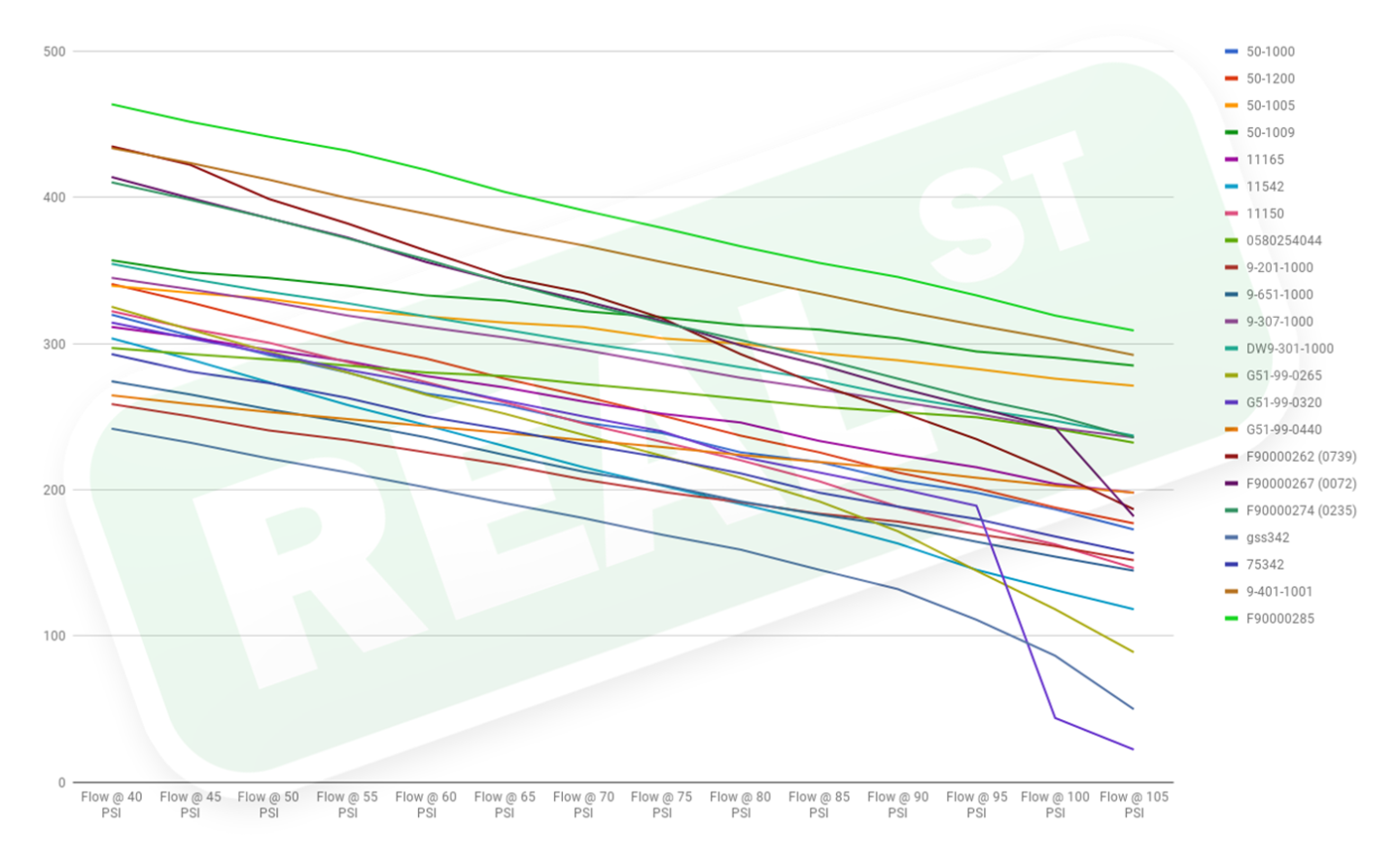
While all of the fuel pump volumes fall off as the pressure rises, some go down more than others as illustrated in this graph.
Let’s say we have a boosted engine that needs to run 105 pounds of fuel pressure. In that case, the combination will be capable of only 455 horsepower on gasoline or 304 horsepower on E85, with a 255 LPH pump according to Real Street’s data. At 40 psi, this same pump will make 776 horsepower on gasoline and 517 on E85. This is why it’s super important to get the correct fuel pump for your specific application but don’t just take our word for it. “DW rates every fuel pump at 40 psi. A typical EFI fuel system’s pressure is between 43-58psi. Not all fuel pumps are rated the same. Always look to see what the pump will flow at the pressure your system runs to ensure you have the right pump to meet your needs,” McDaniel explained.
These two charts show the amount of horsepower each pump is capable of at a specific pressure on both gasoline and E85.
If you’re thinking, “Well, I don’t know what size pump to run, so I’m just going to buy the biggest one available,” don’t do that either. While you would have enough fuel for a monster amount of power, this method has its own set of problems. McDaniel said, “Using a fuel pump that is too large may cause heat issues, eventually ending in boiling fuel and vapor locking. Fuel pressure builds compressing the fuel, compression of the fuel molecules adds heat. Also, having too large of a pump increases the amount of fuel returned to the tank. That fuel goes back into the engine and absorbs heat from the engine/exhaust and carries it back to the fuel tank.” This repeating cycle of massive amounts of fuel going to the front of the car and back to the tank with no time to cool off will eventually cause the engine to shut off due to vapor lock, which will leave you on the side of the road. You will have to wait until the fuel cools before the vehicle will start again, but it only a matter of time before it happens again. Obviously, It’s in your best interest to get the right fuel the first time.
If you’re not sure what size fuel pump you need after analyzing Real Street’s data, DeatschWerks can help you out. The company offers a fuel pump calculator to help select the correct pump for a specific application. You can also call or visit their website for more information on fuel pumps, fuel injectors, hoses, and fittings.




